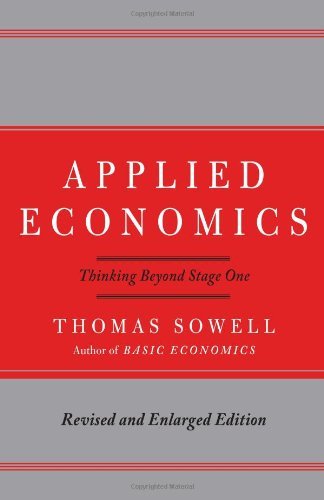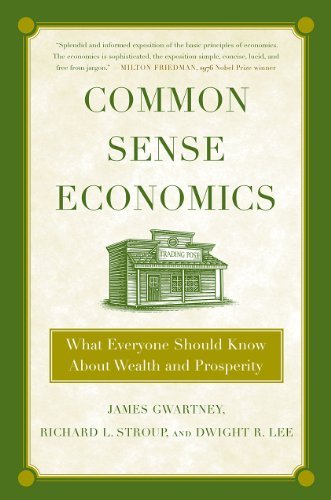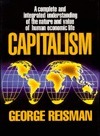
Economic Facts and Fallacies
Book Description
What if everything you thought you knew about economics was wrong? In "Economic Facts and Fallacies," Thomas Sowell dismantles powerful myths that shape public policy and societal beliefs, exposing the stark divide between popular misconceptions and harsh economic realities. With a sharp lens on race, education, and policy, each page uncovers the hidden forces that drive global markets and everyday life. From the pitfalls of well-intentioned policies to the stark truths behind wealth creation, this riveting exploration invites readers to confront uncomfortable truths. Are you ready to challenge your beliefs and see the world through a clearer lens?
Quick Book Summary
"Economic Facts and Fallacies" by Thomas Sowell challenges popular misconceptions in economics by systematically addressing common errors in thinking that shape policy debates and public opinion. Sowell scrutinizes issues related to gender, race, income inequality, urban development, and education, illustrating how intuitive and emotional responses often mislead public understanding of complex economic realities. Through rigorous logic and compelling evidence, Sowell debunks misleading statistics, highlights the unintended consequences of government intervention, and reveals how cultural assumptions distort perspectives on wealth and poverty. He encourages readers to embrace critical thinking and a fact-based approach toward economics, urging skepticism about policies rooted in well-intentioned but ultimately flawed ideas.
Summary of Key Ideas
Table of Contents
Misconceptions about Discrimination and Inequality
Sowell exposes the fallacies underlying common beliefs about discrimination and inequality. He argues that disparities in income or employment between groups cannot be automatically attributed to discrimination, pointing out the influential roles of personal choices, cultural values, and differing levels of human capital. Sowell maintains that government attempts to engineer equality often misdiagnose the root causes of disparities, sometimes exacerbating the very gaps they aim to close. By separating correlation from causation, he deconstructs the assumption that unequal outcomes are evidence of unfair treatment or systemic bias.
The Impact of Government Policies and Intervention
The book critiques the unintended consequences of government intervention across various sectors. Sowell illustrates how policies such as rent control, minimum wage, and affirmative action often backfire—raising costs, constraining opportunities, or reducing overall welfare. He uses historical and empirical data to show that well-meaning policies sometimes harm the groups they intend to help, due to a lack of economic incentives alignment or failure to anticipate market responses. Sowell stresses the importance of understanding incentives and market forces before enacting broad interventions.
The Realities of Urban Economics and Housing
Urban economics and housing are dissected from the ground up, as Sowell critiques prevailing assumptions about urban decline, poverty concentration, and gentrification. He challenges the belief that city planning and zoning regulations benefit the broader population, suggesting instead that they often restrict housing supply, drive up costs, and protect vested interests. He offers examples of cities where less intervention has led to more dynamic development and highlights how overregulation stagnates economic growth and exacerbates social problems.
Fallacies in Education and Income Mobility
Sowell scrutinizes widespread beliefs in education, such as the idea that more spending guarantees better outcomes or that education alone can equalize life chances across groups. He examines data on income mobility and reveals the complexity of factors—family structure, cultural expectations, and early childhood development—that contribute to individual success. The book insists that simplistic causal links between education and economic advancement overlook vital social and psychological dynamics.
Interpreting Economic Data and Statistics
Interpreting economic data, Sowell emphasizes the widespread misuse or misinterpretation of statistics in shaping public policy. He warns against selective presentation of facts and the dangers of inferring causation from mere correlation. Sowell provides readers with analytical tools to question widely circulated economic claims, underscoring the need for skepticism and careful reasoning in approaching economic debates. Ultimately, he advocates for a reality-based understanding that recognizes trade-offs and limits to what policy can achieve.
Download This Summary
Get a free PDF of this summary instantly — no email required.





